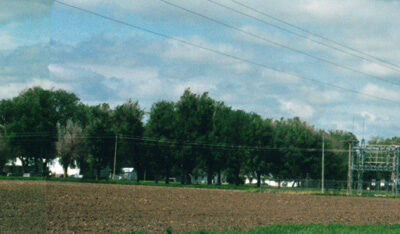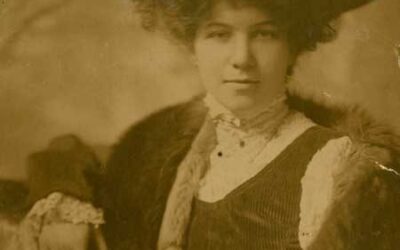Early Nebraska newspapers sometimes published special holiday editions, consisting of seasonal stories, essays, and poems, with competition between rival papers to put out the best. The Daily Nebraska State Journal did not prepare a Christmas edition in 1888 but on December 18 noted the publication of such editions by several of its Lincoln rivals: “There are indications that the holiday edition of the New Republic will go down into history as a clinker, . . . Brer [Andrew G.] Wolfenbarger [Lincoln attorney, temperance advocate, and editor of the New Republic] is hunting for novelties with a fine tooth comb, and when he isn’t hunting novelties he is writing Christmas stories and things of that kind which will make Santa Claus get up on the dash board of his sleigh and howl.”
The Journal further reported that material submitted for the Christmas edition of the Proscenium (promoting Funke’s Opera House) by Thomas H. Hyde of the Evening News had been rejected by the Proscenium’s editor. Hyde “indignantly refuses to have anything further to do with the paper. He will issue a Christmas paper himself entitled Yule Tide, with the title ‘Be Just and Fear Not.’ It will contain a poem from the colonel’s pen entitled ‘Little Gretchen’s Christmas Box; or Be Virtuous and You Will be Happy.’ The paper will be issued within a week.” The Journal afterward (December 21) commented that Hyde was buying an airship to visit the man in the moon in order to get material for his next year’s Christmas edition.
On December 22 the Journal had kinder words for another holiday edition: “The Christmas number of the [Capital City] Courier is a credit to the proprietor and to the city. It is a large paper of eight pages, exclusive of the handsome covers, and is filled with gems of choice literature, contributed principally by local Napoleons of thought. Among those who wrote stories, sketches and poems for it are Patrick Egan, H. T. Dobbins, Robert McReynolds, E. M. Correll, A. B. Hayes, J. D. Calhoun, Rev. W. G. Hawkins, Al Fairbrother, M. M. De Levis, and others of more or less repute. If any criticism were necessary, it would be lavished upon the proof reader, whose errors in some instances are quite distressing.”



